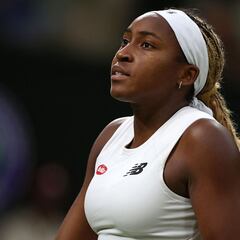Caeleb Dressel doesn’t think World Aquatics can stage a drug free Olympics and here is why
A seven-time gold medalist and holder of three world records, Caeleb Dressel is at the top of his sport which is why his opinion carries a lot of weight.


Sat alongside the CEO of the international governing body of his sport, the American gave a frank take when asked whether he had faith in World Aquatics’ ability to stage a fair, drug-free competition in Paris this summer.
Caeleb Dressel ways in on doping
“No. Not really.” Those were the words spoken by American swimming icon Caeleb Dressel when asked for his views on whether World Aquatics could oversee this summer’s Olympics in Paris, France without the specter of performance-enhancing substances. “I don’t really think they’ve given us enough evidence to support them in how those cases were handled.”
Dressel has doping fears overs Olympic swimming: Seven-time Olympic swimming champion Caeleb Dressel says he is not confident rivals are not doping at the Paris Olympics. https://t.co/AfAYJBjFga pic.twitter.com/rYGDlzeFJv
— Global Voters (@global_voters) July 25, 2024
Of course, the “cases” that Dressel is referring to are the 23 Chinese swimmers who tested positive for the prohibited substance trimetazidine (or TMZ) in 2021. To be clear, none of those positive tests were publicly disclosed, nor did they lead to sanctions of any kind, something that has become a serious point of contention since April this year. With Olympic swimming set to begin on Saturday and China’s team still largely made up of the very same athletes who tested positive in Tokyo four years ago, one can imagine discussion surrounding the issue is heated, to say the least.
With that in mind, Dressel, one of the biggest names in the sport has likely stirred up the proverbial hornet’s nest with his comments about the governing body’s efforts or lack thereof. “When you have someone like Caeleb say that, obviously it’s not what you want any athlete to say,” said World Aquatics CEO Brent Nowicki, while acknowledging the sport has taken a major hit when it comes to credibility and trust. “But we have to look forward. We have to regain his trust and regain the athletes’ trust who share that same opinion. I want you to ask that same question of Caeleb in L.A. [in 2028] and my goal and my hope is that his mind changes...in four years he says ‘You know what? They did what they said they were going to do.’”
OK, but why weren’t China’s athletes punished?
That’s a good question and one that has largely gone unanswered, hence the immense amount of backlash that the World Anti-Doping Association (WADA) has received. After all, the organization at no point published the details of the positive tests and ultimately took no action against them, citing the idea that China’s Olympic federation stated the TMZ was an accidental contaminant from a hotel in which the swimmers were staying. OK.
Related stories

Flag bearer Gauff set for Olympics debut

Morgan a big-name absentee for Team USA
This brings us to World Aquatics itself which has subsequently been criticized for backing WADA’s findings. To that end, this week saw the release of statistics from 2024 drug tests of all athletes who will be participating in aquatic events in Paris this summer. According to the governing body, it conducted 2,958 tests on almost 1,300 athletes since January 1st of this year. That’s almost 1,000 more than in the months before the Tokyo Games and more than 300 more than the 2016 Olympics in Rio de Janeiro.
Michael Phelps is all of us watching Caeleb Dressel as he morphs into a ROCKET. 🚀 #SwimTrials24 pic.twitter.com/5B1G3Io1TD
— NBC Olympics & Paralympics (@NBCOlympics) June 23, 2024
As for what’s being said about China specifically, World Aquatics says that it has tested Chinese athletes on average, 13 times, and those tests have been in addition to other agencies that do the same, meaning that in total athletes from China have averaged approximately 21 tests the start of the year. When you compare that to the American average of 6 in that time along with Australia’s average of four, it would be fair to say there is a significant difference. Unsurprisingly, those numbers have done little to calm critics many of whom are former U.S. swimmers like 2016 American gold medalist Maya DiRado Andrews. “To wonder if the competition is going to be fair when you get to Paris? That sucks,” that sucks Andrews said.
Complete your personal details to comment